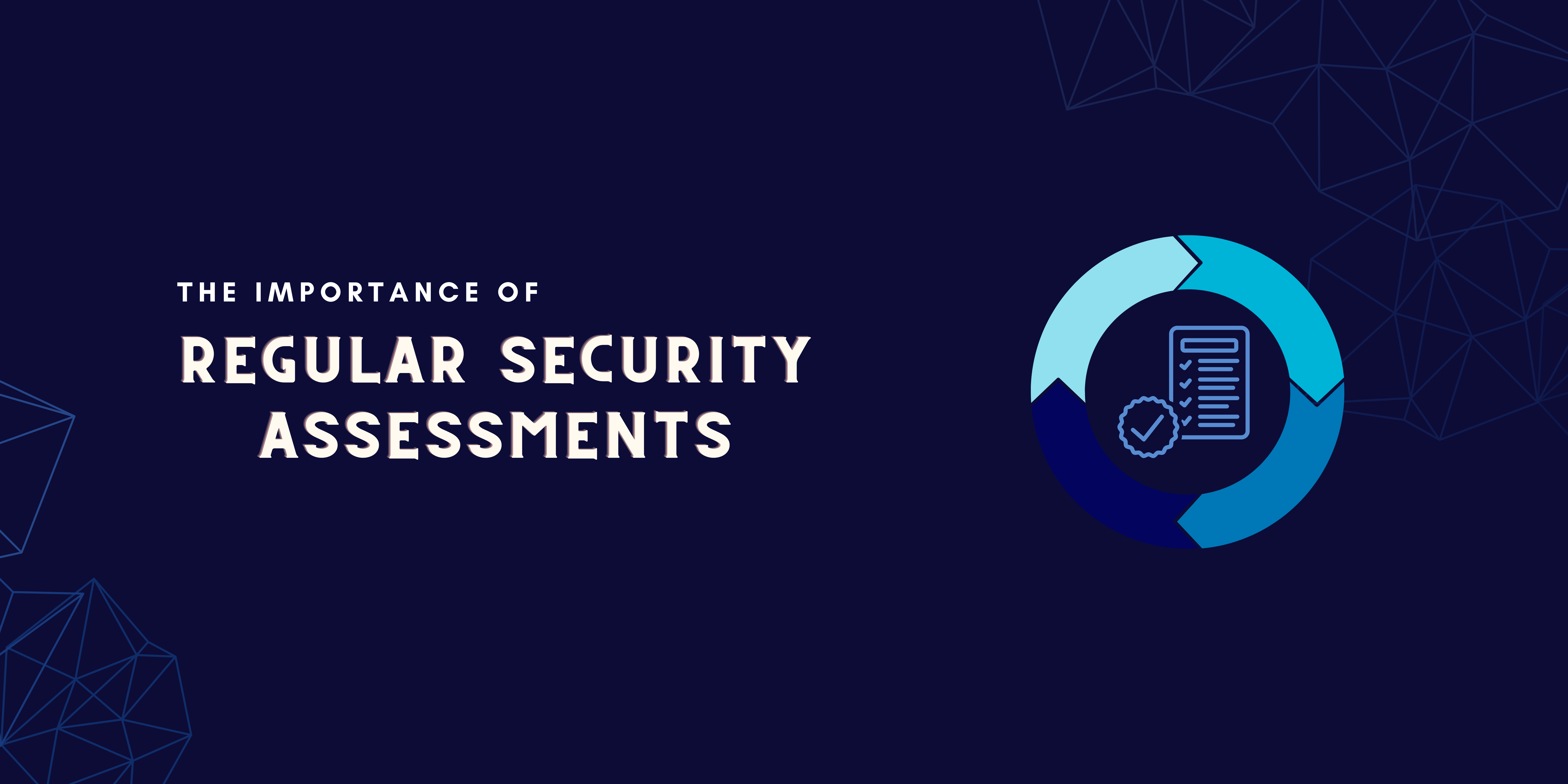Importance of Regular Security Assessments

Protecting sensitive data and systems has become a top priority for organisations of all sizes in today’s interconnected world. It is crucial to routinely evaluate the security of your systems to make sure they are safe and protected against potential attacks in light of the rising number of cyber threats. We will talk about the significance of routine security assessments and why they are crucial for your organisation’s general security in this blog
Why is it Important?
Identification of Vulnerabilities: Organisations can identify potential security vulnerabilities in their systems with the aid of regular security assessments. If these flaws are not fixed, attackers may use them to compromise crucial systems or obtain unauthorised access to sensitive data. Organisations can find these vulnerabilities and take action to mitigate them before they can be exploited by regularly conducting security assessments.
Compliance: Numerous organisations must abide by a number of laws, including the Payment Card Industry Data Security Standard (PCI DSS), which calls for recurring security evaluations. Organisations can make sure they are complying with these regulations and avoid potential fines and legal liabilities by conducting security assessments.
Intrusion detection: Organisations can also benefit from regular security assessments in identifying intrusions that may have gone unnoticed. This is due to the fact that security assessments frequently use methods and tools for spotting irregularities and suspicious activity that could be signs of a security breach.
Implementing best practises: Regular security assessments assist organisations in keeping their security procedures current and compliant with industry standards. The most effective methods for defending against cyber threats change along with the threat landscape. Organisations can make sure they are using the newest and most effective security measures by routinely conducting security assessments.
Cost Savings: Regular security audits can help organisations save money in the long run. Organizations can avoid the cost of responding to security incidents, such as lost revenue, reputational damage, and recovery costs, by spotting and addressing security vulnerabilities before they can be exploited. Additionally, organisations can maximise the return on their security investments by routinely evaluating their security posture and ensuring that their security investments are focused where they will have the greatest impact.
Risk management: Consistent security reviews assist organisations in reducing and managing risk. Organizations can assess the level of risk associated with each potential security vulnerability and prioritise their mitigation efforts by doing so. As a result, businesses are better able to allocate resources and decide what security measures to put in place.
Continuous Improvement: Organisations can use the information they receive from regular security assessments to continuously enhance their security procedures. Organisations can improve the overall security of their systems by identifying areas for improvement and implementing changes as a result of routinely reviewing the findings of security assessments.
Building Trust: Regular security assessments aid businesses in gaining the confidence of their stakeholders, partners, and clients. Organisations can increase trust and confidence in their capacity to safeguard sensitive data and systems by demonstrating a commitment to security and routinely assessing and improving their security posture.
Emergency Preparedness: Organisations can aid in their emergency preparedness by conducting regular security assessments. Organisations can identify potential weaknesses and create backup plans to deal with security incidents by routinely evaluating their security posture. This can lessen the effect of a breach on an organisation’s operations and help organisations be better prepared in the event of one.
Conclusion
In conclusion, regular security evaluations are an essential part of a thorough security programme. They support businesses in risk identification and mitigation, trust-building, emergency preparedness, and continuous security practise improvement. Businesses should prioritise regular security assessments as a crucial part of their security programme and devote the necessary funds to make sure they are carried out efficiently and frequently.
 Never miss a story from us, subscribe to our newsletter
Never miss a story from us, subscribe to our newsletter